Your cart is currently empty!
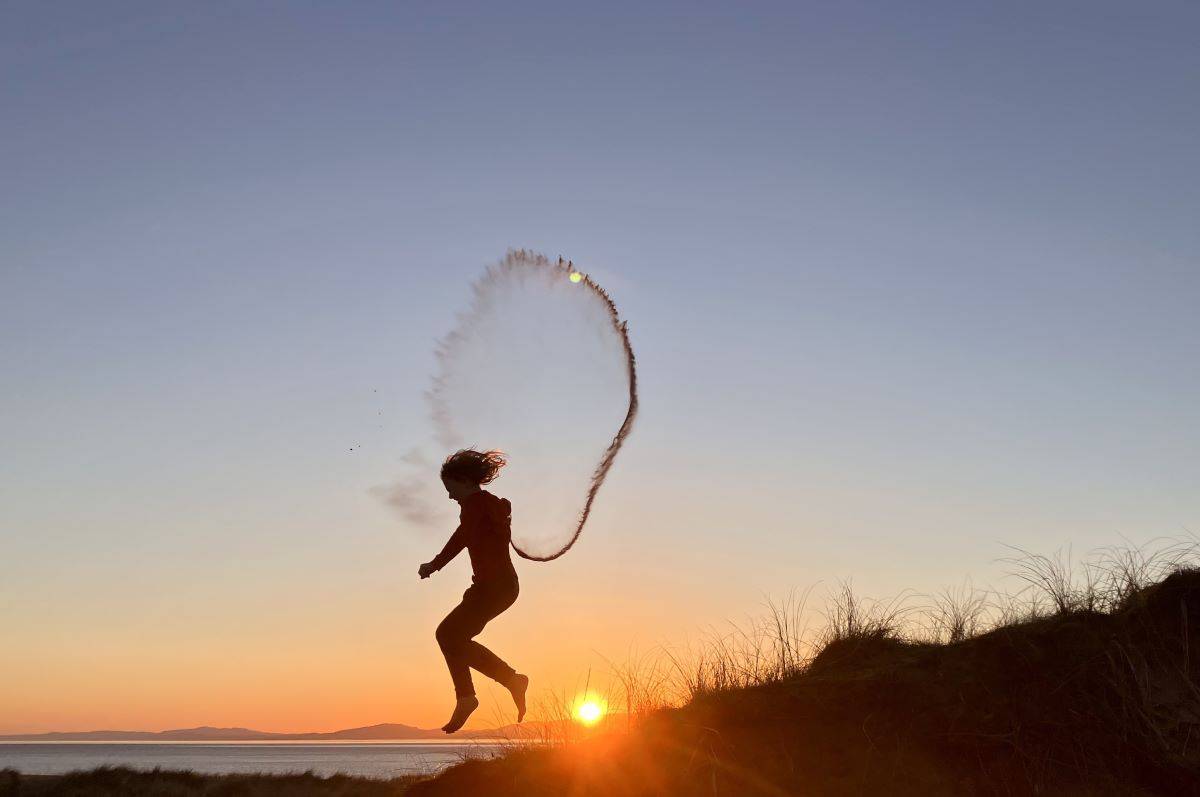
Prioritizing Adventures With Our Children Over Perfection At Home
In a world that often glorifies picture-perfect homes and Instagram-worthy parenting moments, the pressure to have it all together can be overwhelming. Many moms struggle with the relentless pursuit of trying to achieve perfection at home, and how to balance that with spending quality time with their children. Today, Anna Stopinska-Lewucha, a UK mum of two boys, shares how and why she decided to avoid social pressures and swap perfection for more adventures with her children. Anna’s story serves as an inspiring testament to the power of prioritizing what truly matters in the beautiful chaos of parenthood, over the need to look perfect on the outside.
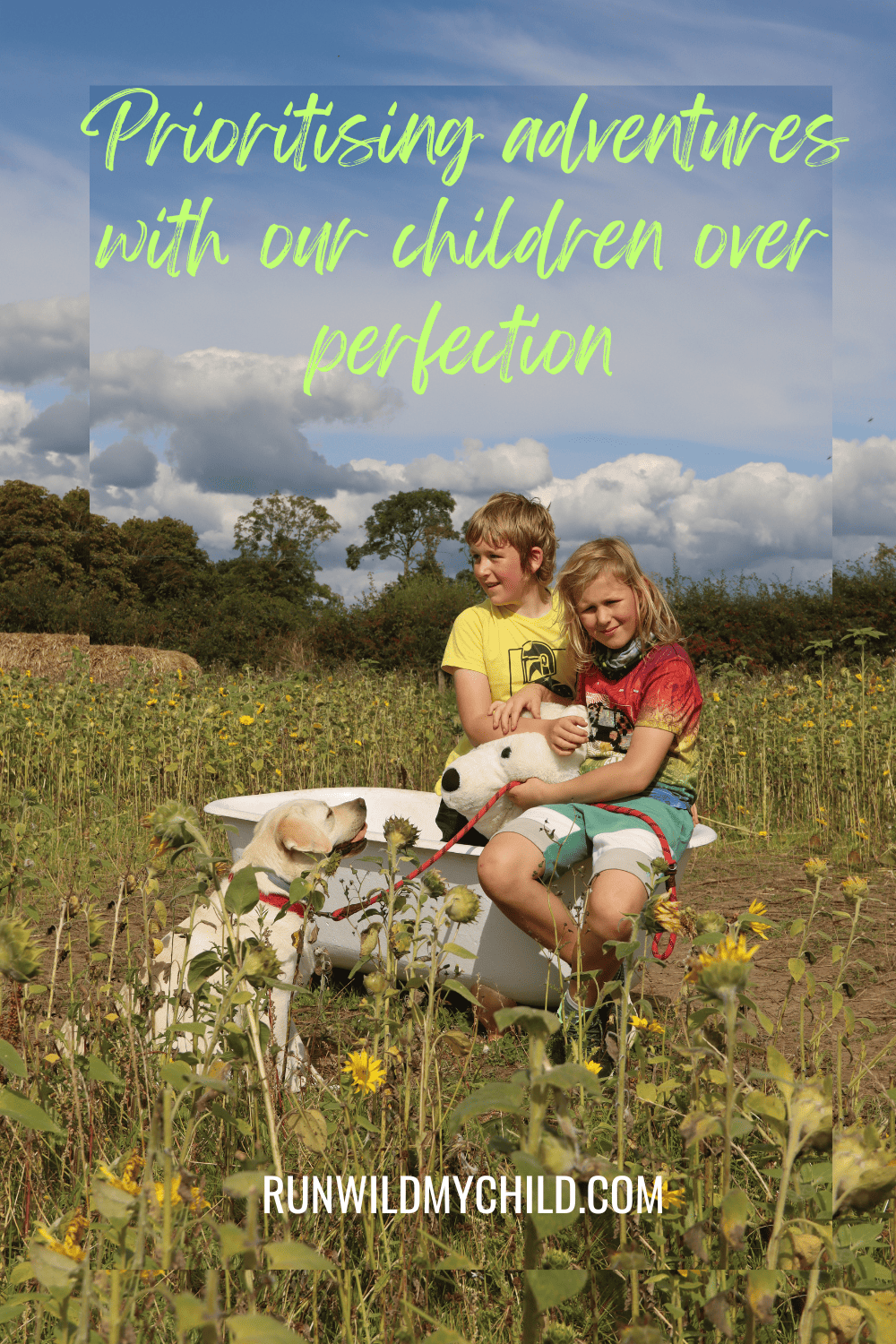
The struggle for perfection
Life in the 21st century is filled with the amazing opportunity to live a life full of adventure. Opportunities for adventure come in all forms. It’s easier than ever to travel wherever our heart desire. We can work and study wherever and whatever we want. We have the opportunity to have amazing careers and beautiful families. Maybe we can even do it all at once, achieving some kind of super-human balance in life.
However, trying to have it all means that we are constantly struggling for perfection. Chasing perfection creates anxiety, makes us feel like we are not good enough, and makes us question our abilities. It’s also not good for our mental health; it consumes most of our time and is emotionally and physically exhausting.
Chasing the perfect family life
The constant drive for perfection can lead to burnout, imposter syndrome, and the gnawing fear of never being good enough. We obsess over every detail, second-guessing our abilities and fearing failure at every turn. The mounting pressure to reach unattainable standards can consume us, leaving us with a never-ending cycle of self-doubt and anxiety.
The pressure to create a flawless home and raise perfect children is overwhelming. In our pursuit of the ideal family life, we often fail to embrace the beautiful messiness of parenthood, forgetting that children thrive on love, creativity, and genuine connections, not on spotless homes and meticulously planned schedules.
This relentless chase for perfection can eventually erode our self-esteem, making us question our parenting abilities and causing us to miss out on the spontaneous, heartwarming moments that make family life truly remarkable. Ultimately, the pursuit of perfection, whether in our careers or families, can lead to a state of constant unease, convincing us that we are perpetually falling short of the unattainable standard we’ve set for ourselves.
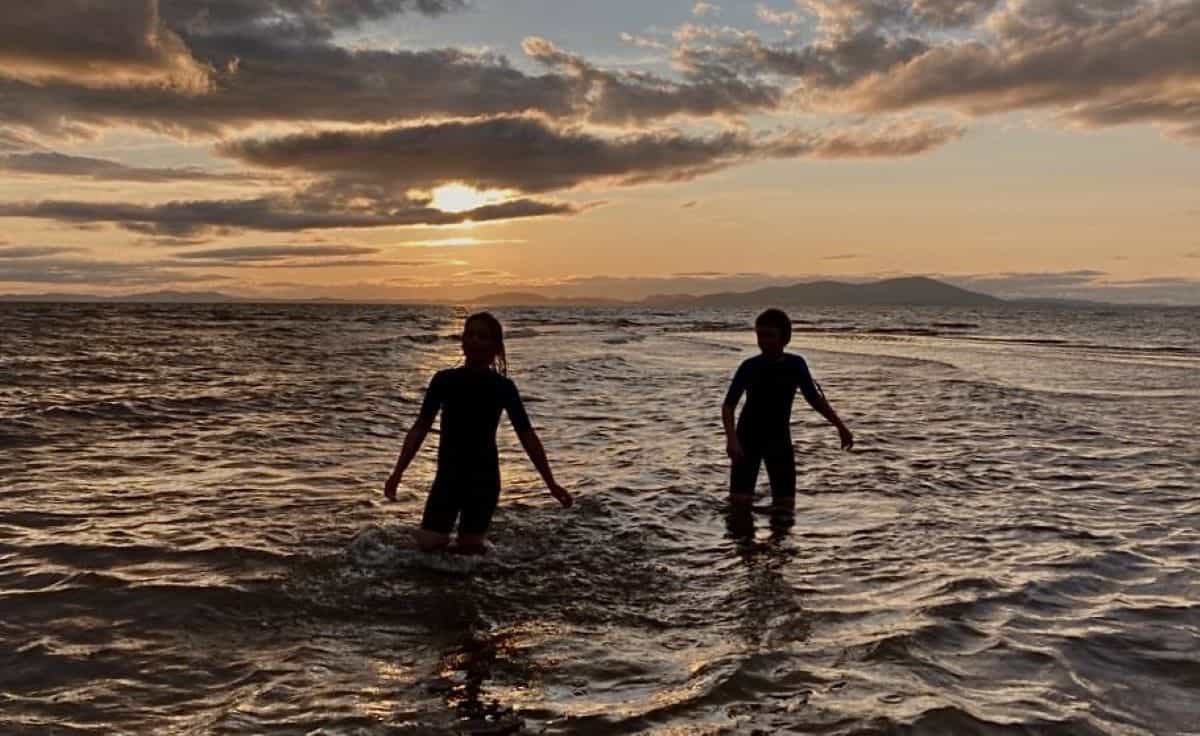
Pressure to perform
The struggle for perfection, in and of itself, is not always bad. Anyone reading this article can find many examples of situations where perfection is needed and desired. Would an Olympian become an Olympian without mastering their skills in their chosen sport? Would we as humanity have achieved what we have achieved, without constant improvement and greater effort? Medicine, science, and engineering are all examples of disciples that demand a constant need for perfection. How far would we (as a society) go if we did not strive to do better?
However, that’s not what we’re talking about here. This article is not written for highly motivated professionals. We’re speaking to mums who feel pressured to perform at superhuman levels. The mums who don’t feel like they’re ever going to be good enough. The ones who question the idea of perfection that society imposes on them, those who do not find the culture of chasing perfection attractive. We’re talking to you…the mum who wants to be a great parent and is tired of trying to keep up with everyone else. The mum who craves passion, adventures, and quality time with her kids. YOU!

Perfect parenting is an oxymoron
Dear mums, a word of warning before we go any further: I’m not a trained parenting expert.
I will not give you any professional advice. I don’t always know what I’m doing and make mistakes all the time.
In fact, this article won’t even be perfect, as I am trying not to put too much pressure on myself to achieve perfection at all costs. Instead, I will use my heart and my own experiences to hopefully inspire you to put perfection aside and instead seek connection. I’m going to share with you how and why I don’t aim for perfection as a parent.
And, from the very bottom of my imperfect heart, I want to tell you that through putting perfection aside, I’ve learned that my children love imperfection, chaos, spontaneity, mess, and adventures (which sometimes go wrong). They thrive in the mess. Chances are yours will too.
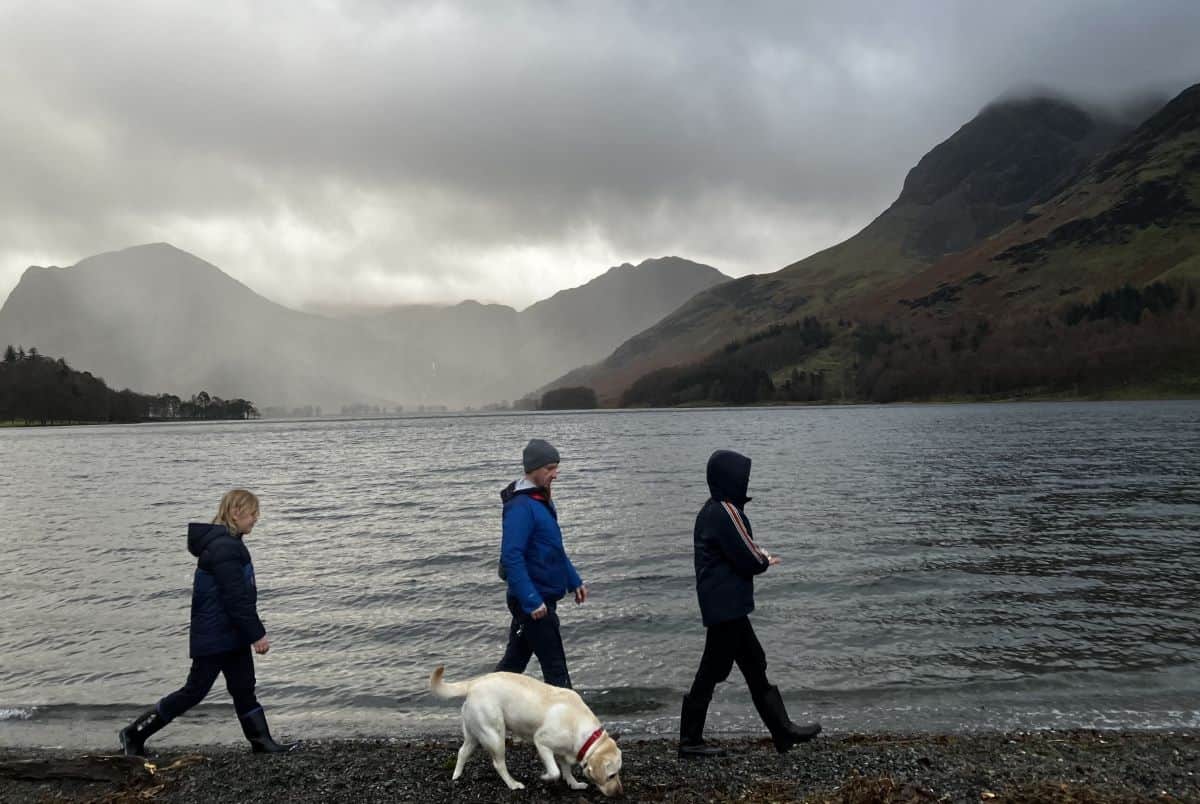
The gift of imperfection
I wholeheartedly admit (to anyone that will listen), that I am not perfect. I’m not a perfect mum; I’m not a perfect wife; I’m not a perfect daughter, or friend, or writer. And I’m not trying to be.
Several elements contributed to my imperfection, but one of the most formative reasons I’m not striving for perfection is because I don’t see my own mum as a perfect mum. She is a wonderful mum, but definitely not perfect. This is a powerful gift that my mother doesn’t even realize she gave me.
My parents are retired farmers, and my mum was always busy at the farm and with the kids. She worked day and night, around the clock. But, our house was never super tidy. She simply did not have time to do it all. She had to prioritise her tasks, and maintaining a perfectly clean home wasn’t at the top of the list. We (the kids) were.
My sister and I had a lot of her attention. We were clean, and well-fed, and our homework was always checked before we went to bed. We were loved.
My mother wasn’t, as some call it, “a proud housewife.” Instead, she was very practical and down to earth. In fact, she was (and still is) a great, great mum, who had to make choices every day, and a presentable home was not on her priority list. And I’m so grateful for that.
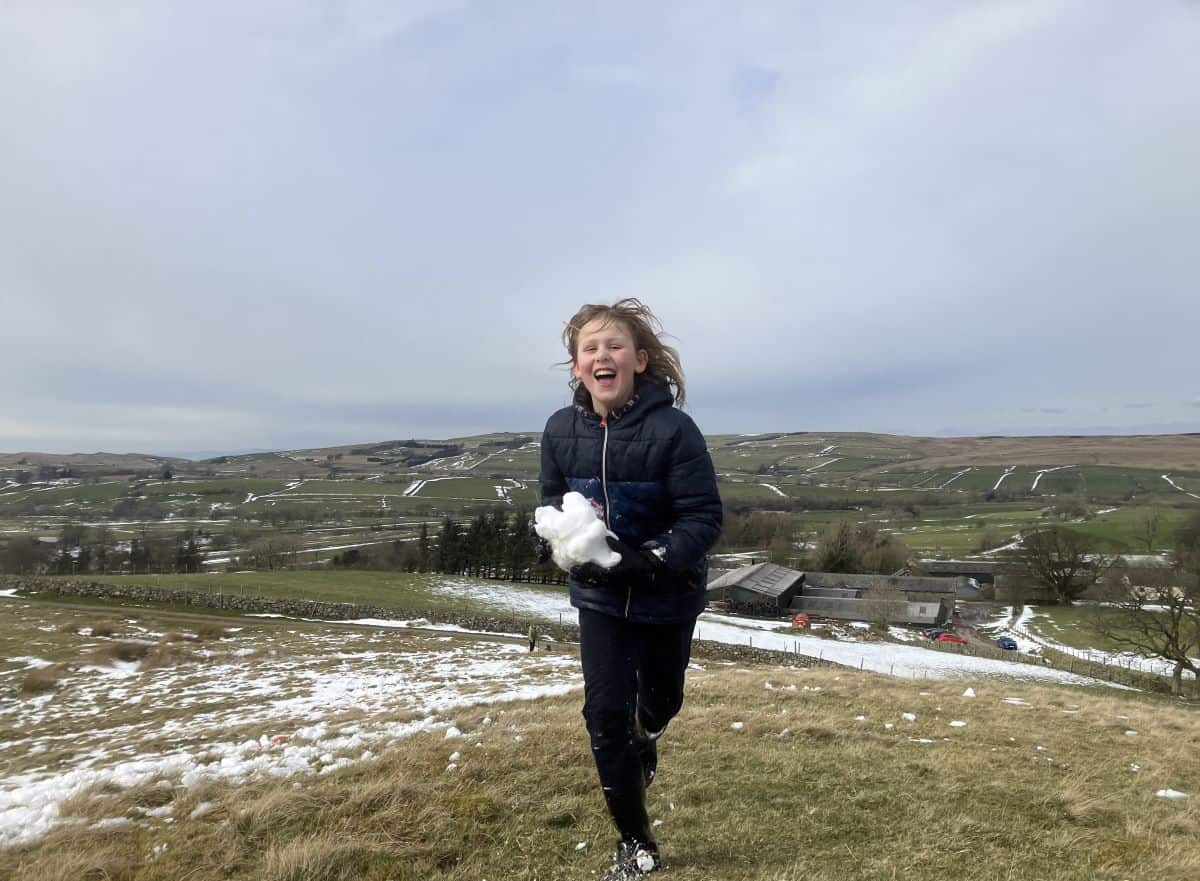
The quest for perfection
Why do we strive for perfection? As mums, why do we dream of having always happy and smiling children, who do not make mess or noise (especially in public)? Why do we want to have neat, spotless homes and immaculate front gardens?
I suppose it’s because perfection is socially admired, and we care what other people think about us. Being ambitious is admired. As is the ability to keep a highly-paid job, a beautiful home, and impeccably behaved children. We try so hard because we want to be seen as successful and good. We tie that all up in our own personal worth. And as parents, the great condition of our children and our homes is proof of our accomplishments and worthiness.
Autism; my parenting teacher
I suppose I followed the same path before my son was diagnosed as autistic. I wanted to have perfectly well-behaved presentable kids with manners. However, my son was often challenged by sensory stimuli, which resulted in frequent meltdowns in public.
After the diagnosis, we, as a family, had two options. One of them was to hide and not to go to places. Not being exposed to the looks of others sounded like a safe choice.
Our other choice (and the one we chose), was to get out there, get all the attention (whether we wanted it or not), and stop worrying about what other people thought of us. Those people aren’t parenting our children. They don’t know what’s going on in our lives. They don’t get a say in how we choose to raise our kids.
And when we mastered (perfected?) this magical ability, life became simply easier and happier.
So, I ended up with noisy children, a wild garden, and a very mediocre job. But, I am a much happier version of my younger self, because I realised that people still appreciate me for who I am. And I also know that my children like spending time with me and they enjoy wildness of their childhood. When they move out I’ll tidy our house up and keep on top of my chores.
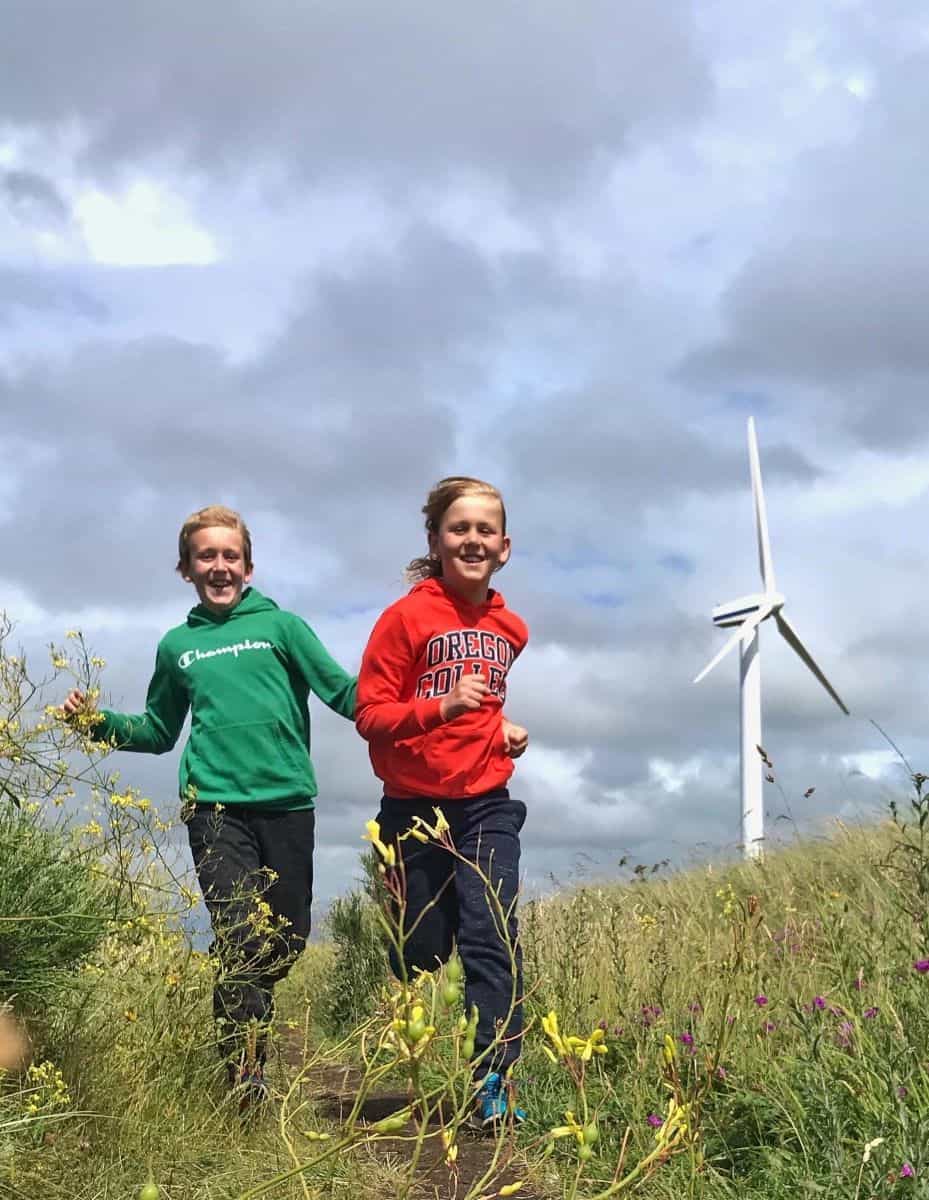
Positive psychology
While writing my dissertation on happiness in the context of parenting autistic children, I came across a concept called positive psychology. It gave me some very useful ideas on how I could focus on my children’s strengths and emphasized the importance of giving children a good, meaningful childhood, filled with positive experiences and powerful memories at its centre.
One book, called The Practical Guide to Happiness in Children and Teens on the Austim Spectrum struck me as particularly convincing and helpful. This book made me realise that it was my job, as their parent, to help make their childhoods happy and memorable. It was up to me and their dad to teach them resilience, confidence and compassion. Instead of talking about ways to “cure” or “fix” my child, this book helped me realize that I needed to shift my focus to my child’s individual strengths and help make happiness a priority and an attainable goal for him.
Plus, I really loved the idea of making our simple lives wonderful and exciting here and now. In a nutshell, positive psychology encouraged me to give my children a solid foundation, so they can flourish, be more creative and confident, less stressed, and more appreciative of the little moments in life. (And couldn’t we all benefit from that?)
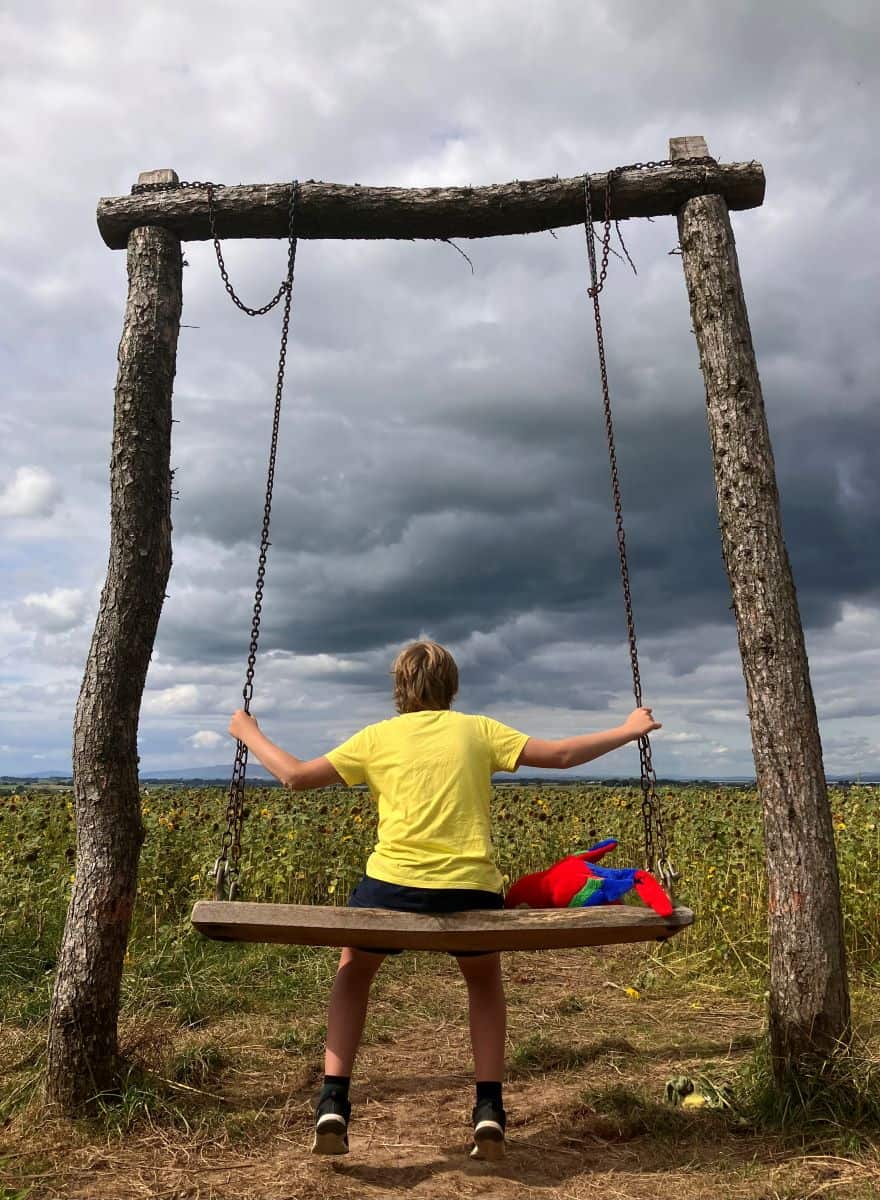
Making good memories
At about the same time I discovered the importance of making good memories for my children, I also decided to “hire” nature as our physiotherapist (you can read about it here). These two decisions to prioritise getting outside and creating a happy childhood seemed to go hand-in-hand. However, it soon became clear that to make these memories really meaningful for the children, I needed to shift my role from the decision-maker of the family to an attentive follower of what they wanted to do and needed to get there.
In practice, this meant gently bending and stretching my older child’s rigid, autistic routines so that we could be more spontaneous and try more new things. This also meant allowing both children some choices of activities and destinations. Both these things resulted in many hours spent jumping in puddles, playing in the mud, getting wet and dirty, climbing what looked unclimbable, focusing on something trivial, and generally a lot of unstructured, outdoor free play.
It took up a lot of their time (and mine). Time that wasn’t spent tidying the house. That wasn’t spent furthering my career. Time invested in them. To me, their happiness justified the imperfect home.
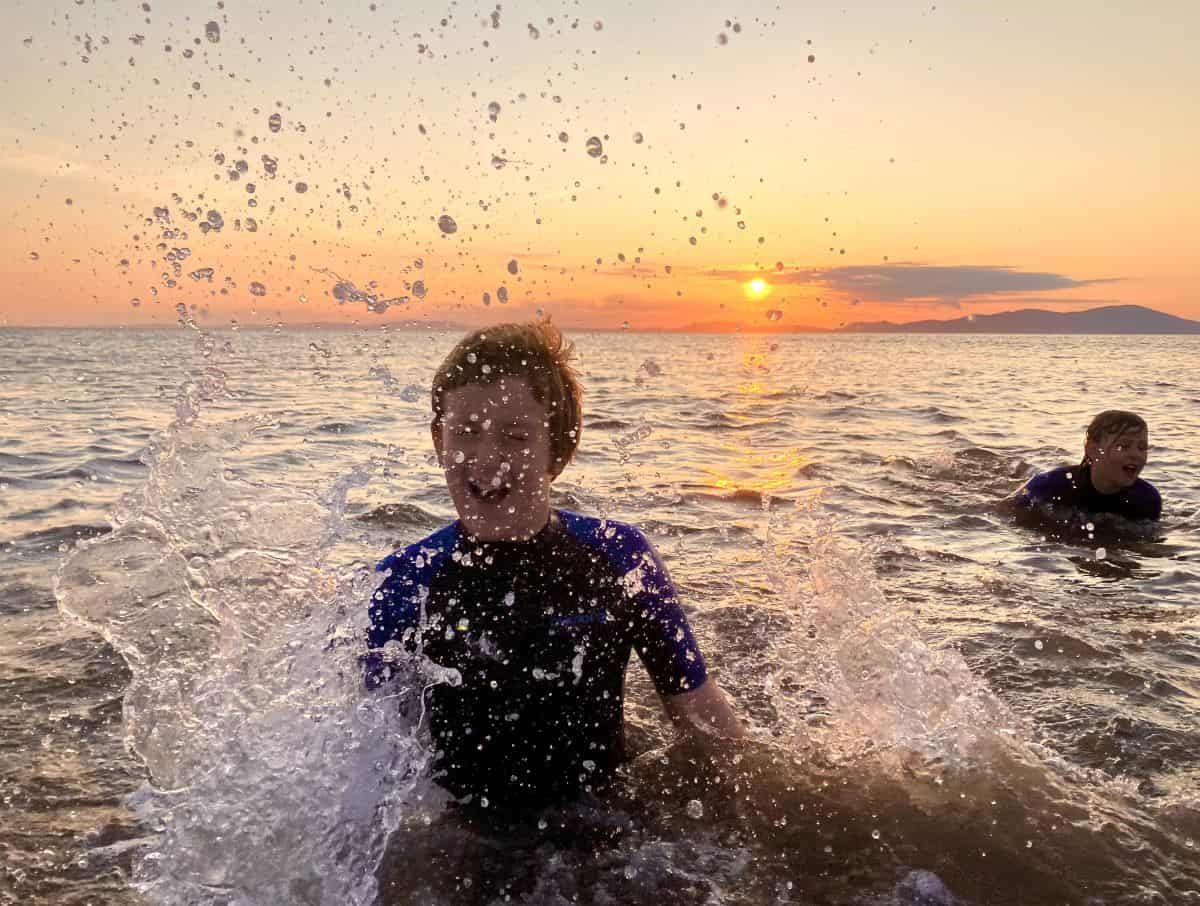
The pressure of “only having 18 summers”
“We get 18 delicious summers with our children. This is one of your 18. If that’s not perspective, I don’t know what is.” Jessica Scott
The above quote about only having 18 summers with our children really struck me when I first read it. That poignant reminder that our time with our children is so fleeting and precious made me a bit anxious and panicky. I immediately felt like searching the Internet and booking an amazing vacation for every summer we have left as a family. Because we only have 18 summers. And look how many we’ve already wasted!
Then, a friend told me that her 13-year-old would rather spend time with her friends than with her mum and dad, and that made her really happy. A 40-year-old lady at work said she spends (willingly) every summer holiday with her children as well as her parents. I thought of all the time I still spend with my parents.
I also realized that booking an “amazing holiday vacation” every summer would cost much, much more than our usual, cheap camping road trips (which we all loved and cherished), which meant I would have to work more hours or find an additional job to be able to afford them. Which, of course, means spending less actual time with the kids. That was confusing…
Relieving the pressure
While I understand the sentiment of the quote, I slowly realised that it evoked exactly the wrong feeling in me and added more pressure and anxiety to get it right (to make it perfect).
Yes, I might only have 18 summers with the kids. Then again, I might have only 13 summers or 40+ summers. And, I also have an entire life beyond summer with them. Our life and time with our children should not be limited to summer months (especially since summers are so short in the country where we live…not fair).
And I also understand that making memories does not necessarily mean spending an impressive amount of money on an elaborate and expensive 2-week vacation every summer. Summer can look however we want it to look, whether that’s camping, traveling, or just jumping in a lot of puddles.
Once again, it made me realise that random online wisdom and that pressure to be the perfect parent (and have the perfect summers) could be doing me more harm than good and that I needed to give myself some space to think about what my priorities were and what really mattered to me.
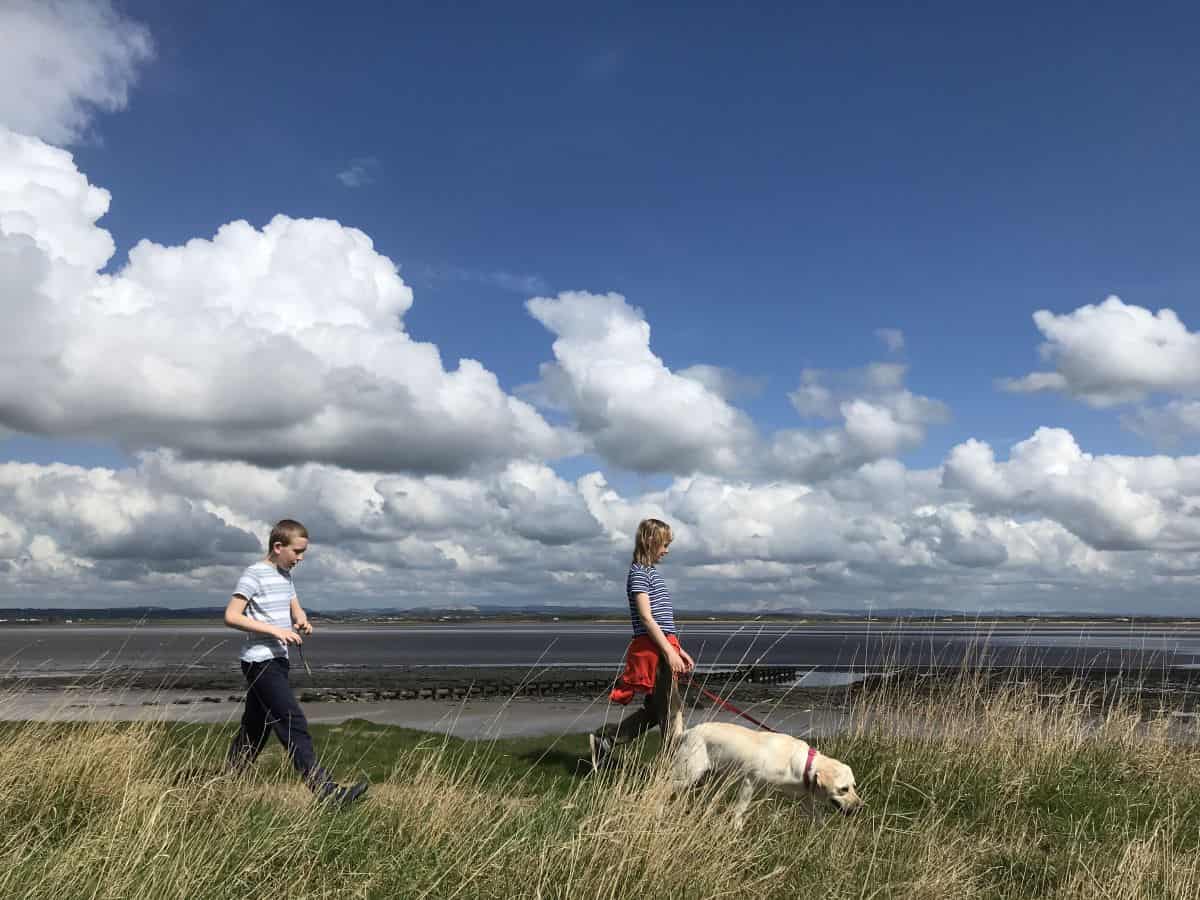
Discovering “micro-adventures”
Fortunately, someone helped me find an antidote to the unfortunate “you only have 18 summers” quote. My manager told me about Alastair Humphrey, a British adventurer (National Geographic’s Adventurer of the Year, actually), who travelled far and wide, only to discover that amazing adventures were closer than ever, and didn’t need a lot of money to make happen.
His concept of micro adventures encourages people to seek meaningful outdoor experiences close to home, emphasizing that adventure is not confined to far-off, exotic destinations. Micro adventures are short, accessible, and often spontaneous outdoor escapades that can be undertaken in a few hours or over a weekend, making them easily accessible to anyone with a desire for adventure. They are important because they promote a sense of exploration, help break the monotony of everyday life, and encourage individuals to connect with nature, fostering a spirit of adventure and curiosity in their daily routines.
Thanks to him, I also learned about another concept that gave us so much more time to adventure. He widely promotes the idea that there is space for adventure and fun between 5:00 p.m. and 9:00 a.m. (which we adjusted to after school hours and weekends). Yes, you may work from “9 to 5,” but adventures can happen from 5 to 9!
Alastair explains that micro adventures are “simple expeditions and challenges that are close to home, affordable and easy to organise. Ideas designed to encourage everyday people to get out and do something for themselves, even in these tight financial times.” The very ordinary person in me jumped for joy and erased “18 summers” from my mind once and for all.
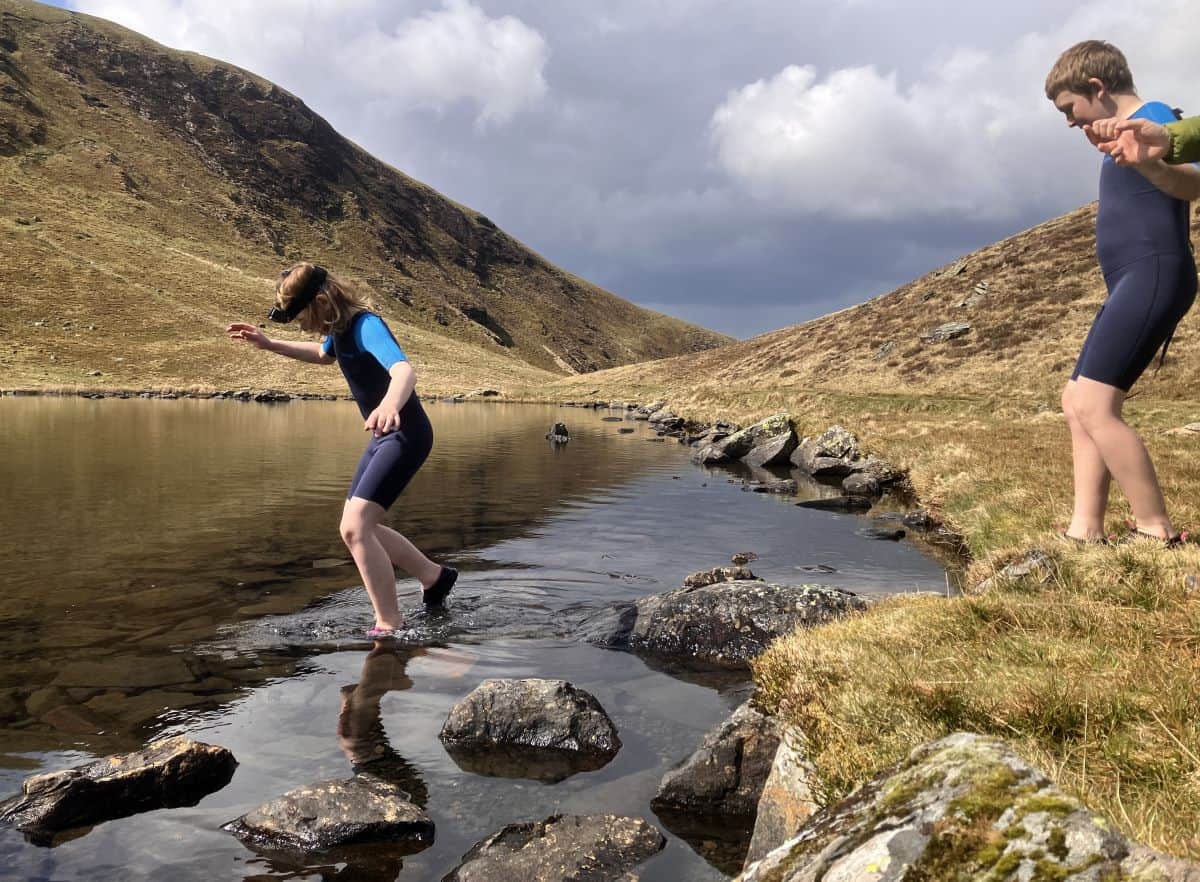
Simple adventures over perfection
So, I dug into Alastair’s list of ideas and found some that were absolutely NOT for us. However, some were very much for us! So, we decided on a few of them and got started doing simple camping trips, sleeping in camping pods, short day trips, wild water swimming, local bike rides, fell (mountain) walking, and after school, quick out-of-town adventures with fresh excitement.
Since summers in Northern England are short and the weather is rather moody, we often have to deal with elements when we’re out adventuring. Also, quite often, we decide to go on last-minute outings when we do have good weather in order to make the most of our afternoons and weekends. We have the advantage of living near a national park, close to the coast, and very near Scotland. Our Novembers are five months long (November lasts through March), so, we accept and embrace it, still doing things outside, maybe in a different way, but having fun.
Adventure is calling (and we must go)
This shift in our attitude, both towards going on more adventures and making the most of our time, has really changed our family. We’re more flexible, more willing to say yes, and less focused on everything being perfect. We leave the house a mess so we can get outside. The dishes and the laundry can wait…adventure is calling.
All photos in this article were taken during such adventures to demonstrate how worth it was (and still is) to trade a spotless house for making memories with our children. And it is these micro-adventures, often at the last-minute, without a proper plan, where the state of our house and our front garden pays the greatest price.
Will my children remember this? I’m not sure. But, I know I will. And even if they don’t remember the actual adventure, I think they will remember all the spontaneous fun we had.
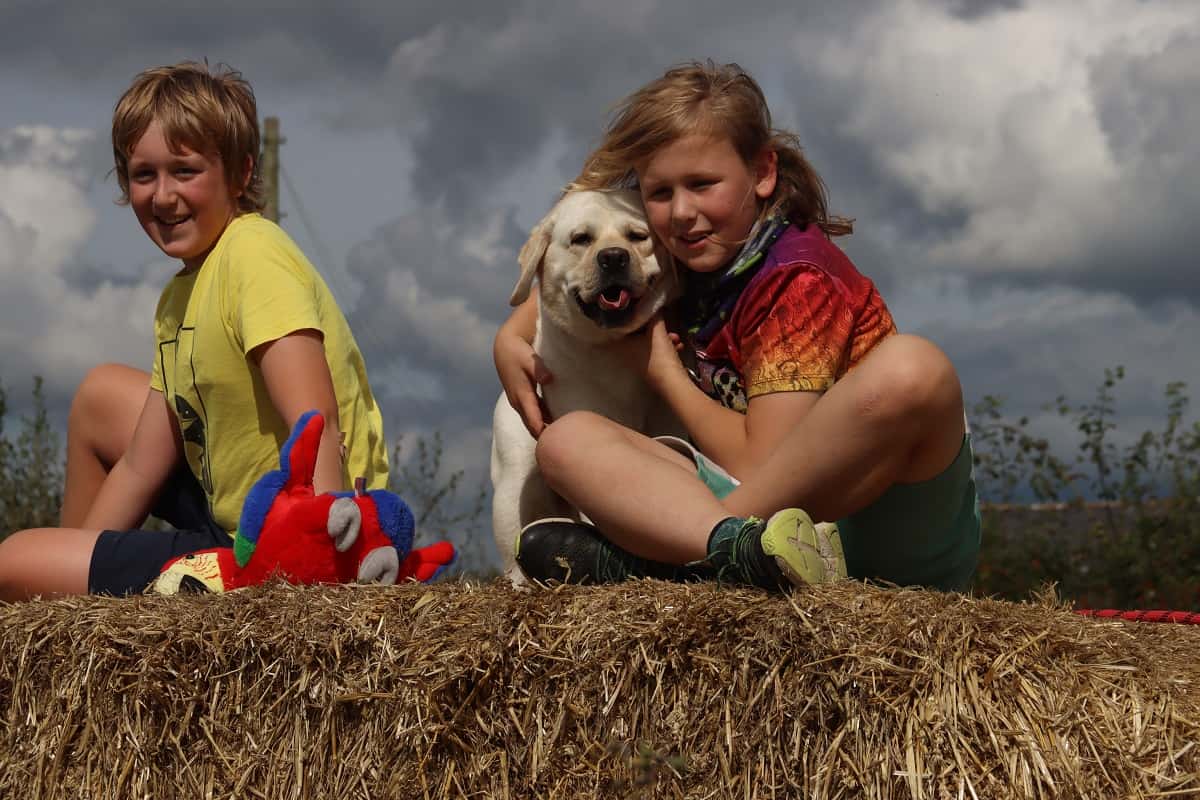
Following the lead
The poem below by Vicky Ryan, has become one of my most favourite poems. I feel like it accurately summarises my choices as a mum. The choices that have made all the difference for us.
“My dishes went unwashed today
I didn’t make my bed
I took his hand and followed
Where eager footsteps led
Oh Yes, we went adventuring
My little child and I
Exploring all the great outdoors
Beneath the sun and sky
We watched a robin feed her young
We climbed a sunlit hill
Saw cloud-sheep scamper through the sky
We plucked a daffodil.
That my house was so neglected
That I didn’t brush the stairs
In twenty years no one on earth
Will know or even care.
But that I’ve helped my little child
To noble adulthood grow
In twenty years the whole wide world
May look and see and know.”
Start adventuring small
Once you decide to ditch your dishes and take your children outside instead, you should know that tailoring simple adventures to suit their age, abilities, and preferences is very important. You want to make getting outside fun (and a bit of a challenge), but you shouldn’t push them too hard when you’re just getting started.
To be honest, I found Alastair’s list of micro adventures a bit scary at first. However, I took great comfort in learning that any time we stepped out of the house and did something outside, it could be called an adventure. And as my children get older, and we get more comfortable outside, trying new things, the list of adventures we can have together expands.
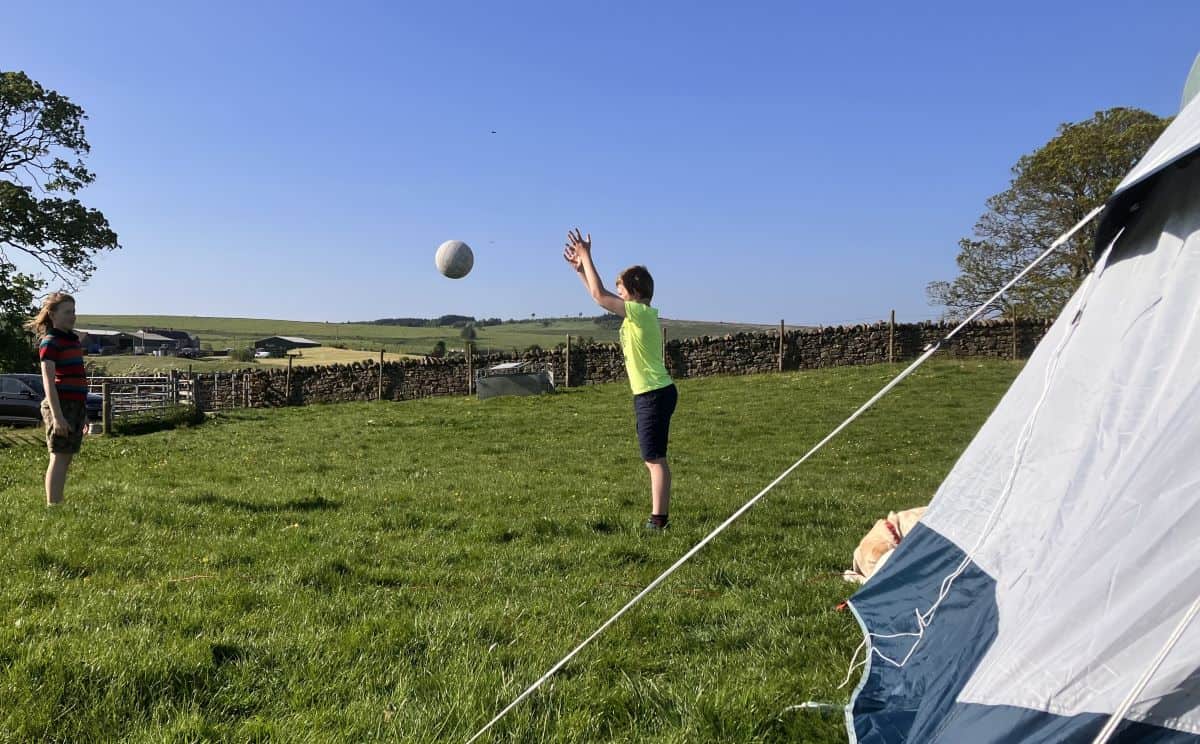
Our list of micro adventures
Here is my own list of micro adventures that our family has tried (and loved):
- Blackberry picking (and then baking a crumble together).
- Climbing over rocks, boulders, and fallen trees. Great for improving balance and body strength and is one of my boys’ favourites.
- A forest walk. You can go to the same forest again and again, Seasonal changes are always interesting, and most children love being in the woods.
- Exploring a map of our local area and letting them decide where to go.
- Hiking. My two can walk for miles as long as I promise them ice cream.
- Crabbing. So much excitement!
- Visiting a cave. Our latest discovery! Both children found the acoustics fascinating.
- Wild swimming. Actually, we changed this one to just entering any open water, as we don’t push them too hard. Even dipping their feet in cold waters counts.
- Foraging for mushrooms. Neither of my kids will eat mushrooms, but they love looking for them!
- A night-time walk. Great for winter months when the nights are long. It’s an amazing sensory experience (and a good way to show them that the Skin Walker they saw on YouTube isn’t there, despite the video’s 11M views).
- Running away from a storm. We got absolutely drenched in rain, on that day but, look at their faces!
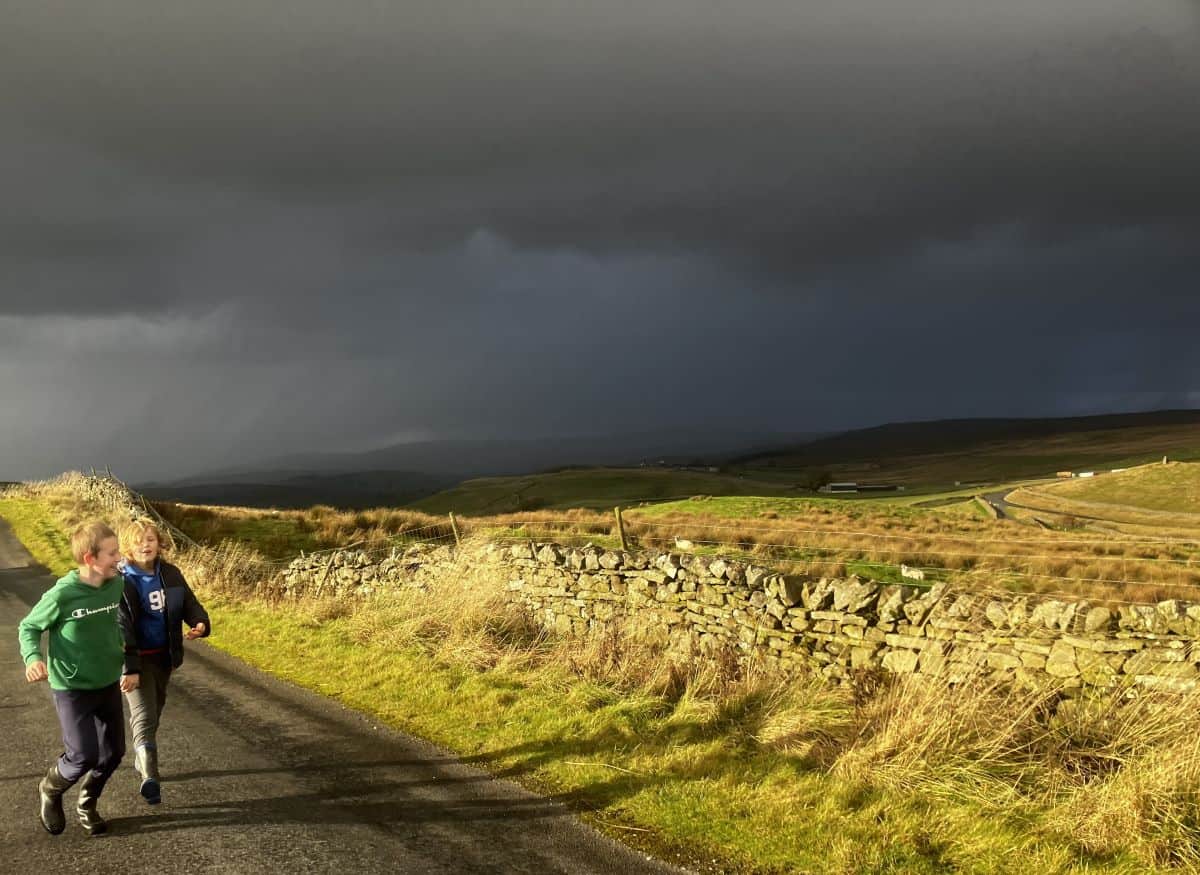
Simplicity and spontaneity
The above micro adventures are all after-school, spontaneous outings (done in that 5-9 time frame). They can be easily adapted to the place where you live and your children’s interests. These did not cost us much (petrol, sandwiches and snacks, crabbing kit and ice cream) and did not require any special preparation. Keeping the activities simple mean that we can do them at a moment’s notice, whenever the fancy strikes us (or the weather cooperates).
The magic happens when you get out of the house
One of our favorite adventures last year was when my husband woke up with a cold one Saturday. Our house was in desperate need for a good cleaning, but my husband needed some rest, so I took the boys out on a short hike to our favourite fell.
It was a frosty December morning, and there were thousands of spiderwebs hanging throughout the forest, all beautifully frozen and shining in the rising sun. The three of us spent so much time admiring these gorgeous works of nature.
Then, when we reached the top of the fell, there was a cloud inversion! Imagine, being a child and feeling like you’re standing on top of the world, having nothing but clouds under your feet! It was truly magical. And nothing that we ever could have planned for. We would have missed both the frozen spiderwebs and the clouds if we had stayed home and tidied the house.
And that is what I am trying to sell here: delight on their faces, the twinkle in their eyes, and seeing them immersed in the moment. My laundry and dishes are worth the sacrifice….
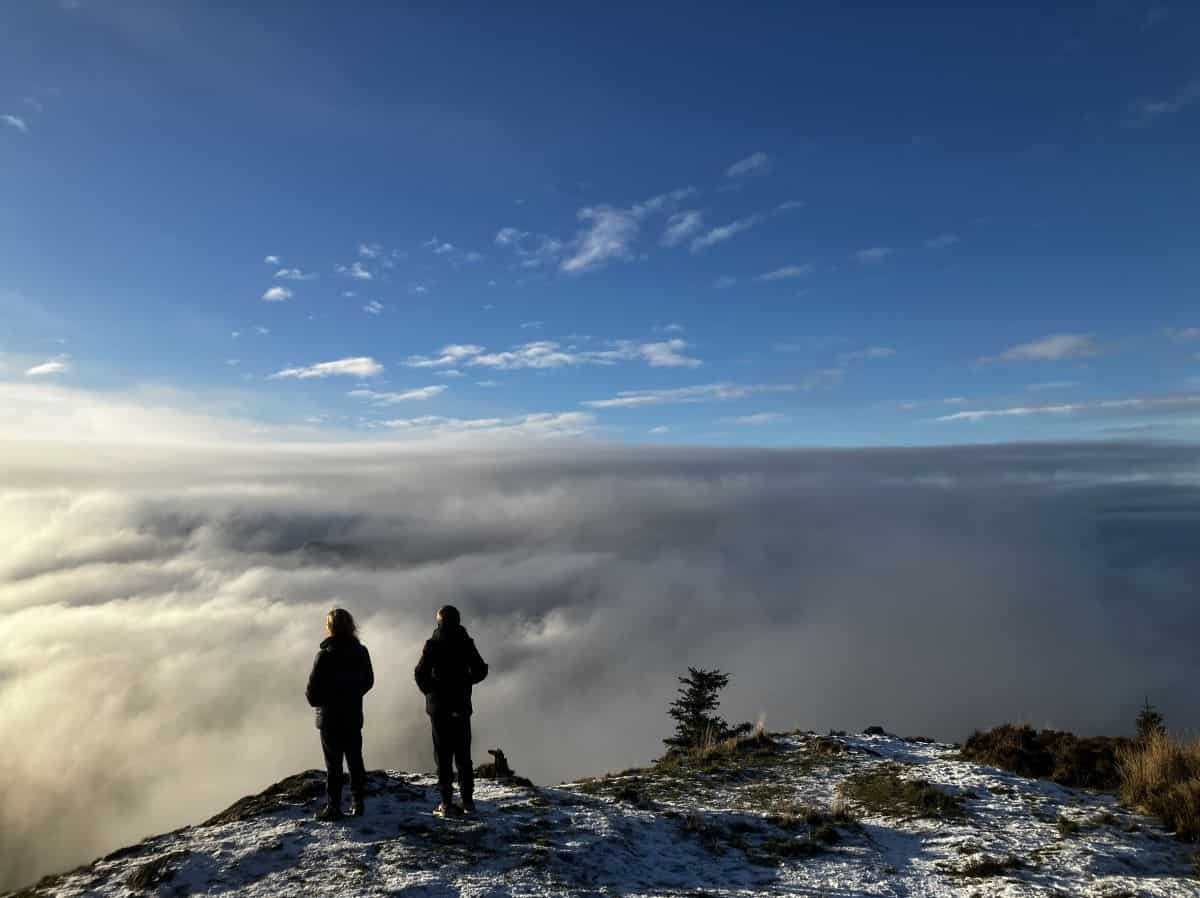
Because in the end…
“Because in the end, you won’t remember the time you spent working in the office or mowing your lawn. Climb that goddam mountain.” Jack Kerouac
An impressive career and a spotless house are admirable. But, I have a feeling that years (decades from now), giving our children a magical childhood filled with adventures together, no matter how small, is what we (and they) will remember and cherish most. So leave those dishes in the sink, mama. Let the laundry pile up. I, for one, will applaud you for choosing adventure over perfection and for making the most of the time you have with your children.
Live with them, adventure with them, listen to them. And let the chores wait.
How are you living?
Are you chasing perfection or prioritizing adventure?
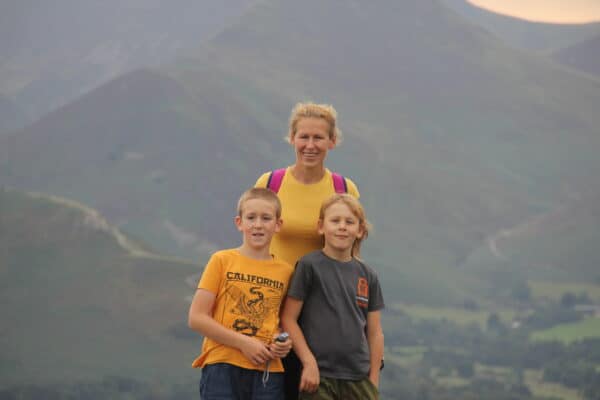
About the author
Anna is a mum of two energetic boys and the wife of Cezary. Before they started a family, they enjoyed backpacking and hitchhiking. Once the kids arrived, they adjusted their lifestyle and settled down in the beautiful Lake District, in the northwest of England. It’s often foggy and rainy where they live, but, they are outdoors in any weather. Anna is an ultramarathon runner, and Cezary loves triathlons, so, the children grow up being involved in hiking, trail running, cycling, all-year-round wild water swimming, and camping.
Stefan is 12 years old and has been diagnosed with Autism Spectrum Disorder and ADHD. Antek is a neurotypical 10-year-old. Anna believes in positive psychology, in creating good moments and capturing memories. She believes being outdoors brings them together as a family and advocates for children with additional needs to be encouraged to explore and play outside. She trusts nature is a natural playground, enriches and stimulates the senses, and this is where she sees her children happiest.
You can find more from Anna in the following online location:
Instagram: @celebrating_my_boys_journey
All RWMC posts: Anna Stopinska-Lewucha
Comments
2 responses to “Prioritizing Adventures With Our Children Over Perfection At Home”
I love this post. 1000% yes to more microadventures! The house can wait. Dinner can be eaten in a field or in a forest. The poem by Vicky Ryan is spot on!
Anna your story resonates deeply with me as a parent striving to create lasting memories with my kids. The emphasis on choosing adventures over perfection is refreshing in a world often fixated on flawless homes. One tip I’ve found helpful is to involve kids in planning these micro-adventures; letting them choose an activity or destination empowers them and adds an extra layer of excitement. Here’s to embracing imperfection and crafting unforgettable moments with our children!

Leave a Reply